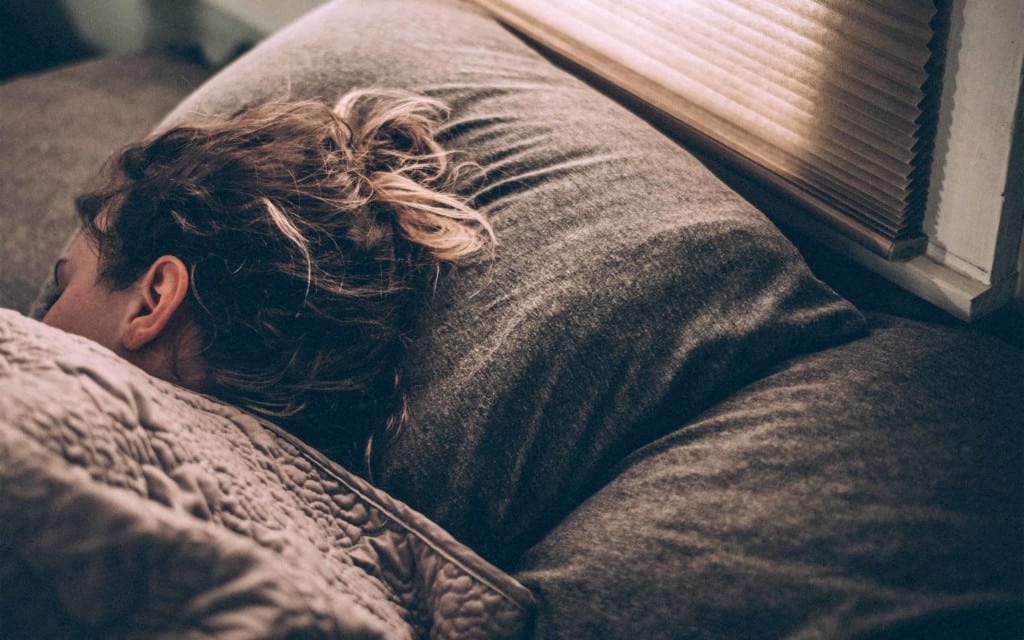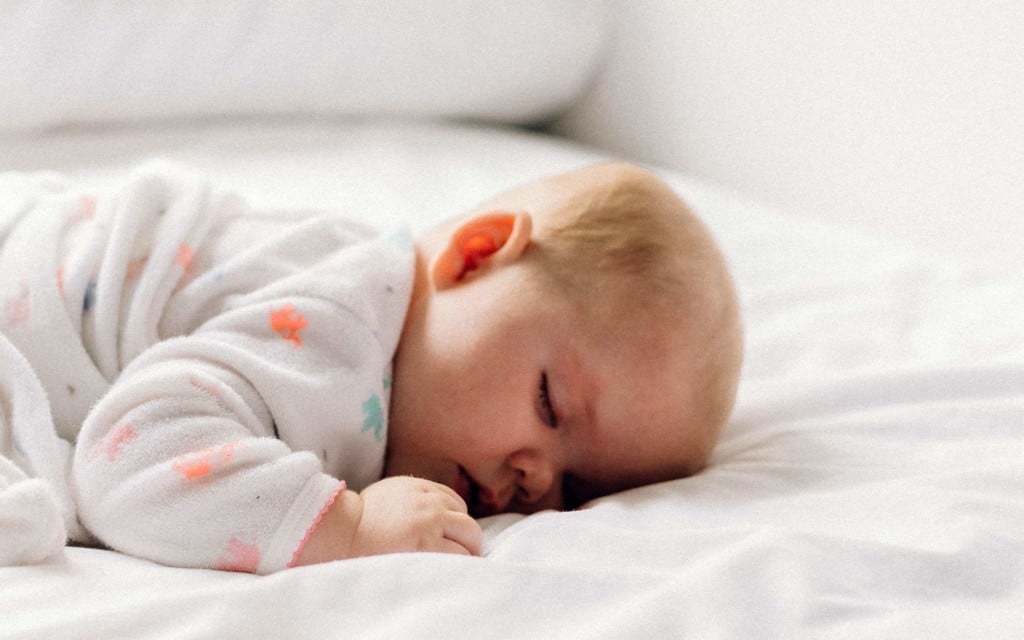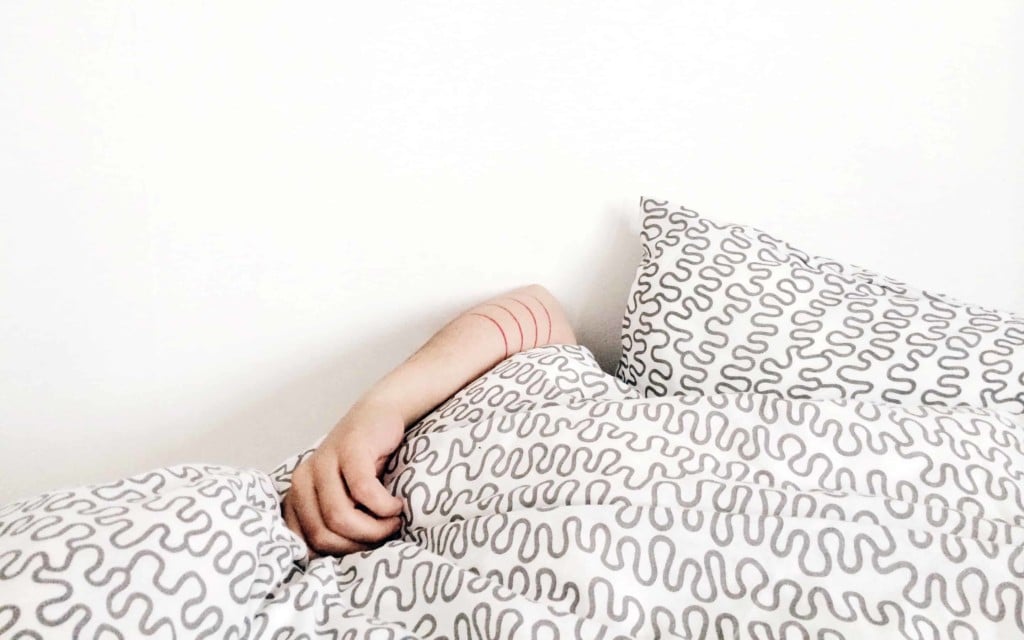Do you really need 8 hours of sleep to function?
Not according to the latest studies.
We all know that sleep is a basic biological necessity. Plus, few things feel better than the warm embrace of your bed when you’re exhausted after a long day.
The question is, how much sleep do we really need?
Just one night with too few hours could be enough to send you spiralling into a world where you’re more sluggish, emotional, and distracted than usual.
Waking up an hour earlier or tossing and turning through the night can change the way you think and behave instantly. What’s more, when lack of sleep starts adding up, the effects aren’t pretty.
We’re not just talking about pale skin and dark circles under your eyes either.
The more you struggle to get the right amount of sleep each night, the more your mind and health deteriorates. Fun fact? The CIA has even used sleep deprivation as a method to torture information out of detainees.
So, how much sleep is just right for you?
Let’s find out.
How much sleep do we really need? The science
The jury says between 7 and 9 hours of sleep will be best for most people.
So, why isn’t there an exact number?
Sleep is essential for mood regulation, physical health, memory consolidation, mental function, and energy management. When you fall asleep, you’re not just “shutting down.”
You’re going through a complicated process of releasing proteins, preserving information, and adjusting brain waves.
It takes time for your brain to do everything it needs to do to deliver a good night of sleep. That’s why too few hours leads to problems with the things your sleep pattern is responsible for regulating.
For instance, get too little sleep, and you won’t be able to keep your metabolism working correctly, which means an increased risk of obesity and diabetes.
Sleep also alters the way your immune system functions, which could mean that fewer hours in bed lead to more illnesses.
So, how long does it take for your brain to do its job and keep your body and mind in tip-top form?
Well, that depends.
Unfortunately, though it’s easy to give a “baseline” answer to the question “How much sleep do I need?” there’s more to it than you might think.
Individual sleep needs may vary, sometimes even more widely than the 7 to 9 hours recommendation allows for.
So, how much sleep do we really need?
According to sleep specialist Dr Michael Breus, the most common magic number is 7.5 hours per night. That’s the average for most people, not taking into account things like average caffeine intake, health conditions, brain functioning, genes, and other disruptive factors.
Fortunately, we can help you to figure out a more precise figure with a bit more research.

How much sleep do I need for my age and gender?
Okay, so we know that the average adult needs 7.5 hours of sleep.
Notice that we used the word “adult” there. That means that the amount of sleep you need will depend on your age (as well as a bunch of other things). The older you get, the less rest you’re likely to get.
If you want to calculate the minimum amount of sleep needed for brain function, you need to start by looking at the average for your age group. So:
- 0-3 months: 14 to 17 hours of sleep.
- 4-11 months: 12 to 15 hours of sleep.
- 1-2 years: 11 to 14 hours of sleep.
- 3-5 years: 10 to 13 hours of sleep.
- 6-13 years: 9 to 11 hours of sleep.
- 14-17 years: 8 to 10 hours of sleep.
- 18-64 years: 7 to 9 hours of sleep (7.5 is the average).
- 65 and older: 7 to 8 hours of sleep.
There’s also another crucial component of your physical makeup that can affect how much sleep you need.
Your biological gender may also play a part.
According to some studies, while all genders are exposed to issues that can make it more difficult for us to get the right amount of sleep (like workplace stress), some sexes can face more sleeping problems.
For example, snoring is a pretty common problem that causes people to wake up, or be unable to get the deep, restful sleep they need.
Nearly 90 million people snore at some point each night. However, males often have narrower air passages than women, which can result in more noise throughout the night.
If you have a narrower air passageway, you’re more likely to sleep loudly — increasing your risk of waking yourself, and your partner up.

Do you really need 8 hours of sleep? Why some people need more Zzz’s
For most people, 7.5 hours of sleep will be enough.
That makes the old-fashioned idea that we all need 8 hours of sleep a little outdated. However, there are some people out there who will need a lot more sleep than others for various reasons.
If you’re asking the question: “How much sleep do I actually need?” because you’re always tired after eight hours in bed, this could be a sign of other elements at play.
If you don’t feel refreshed in the morning, regardless of whether you’re getting 5 or 8 hours of sleep, the following issues could be increasing your need for rest:
1. A need to sleep is in your DNA
Unfortunately, no matter how hard you try to live a healthy lifestyle and manage a good sleep schedule, your genetics could play a role in why you might need a few extra hours in bed.
Some people are just naturally predisposed to want more sleep. The best thing you can do in this case is to make sure you’re not making things worse. Stick to a regular bedtime and get up at the same time each day.
2. You have a sleep disorder
Sleeping disorders are more common than you think. If you’re wondering, “How much sleep do I need?” after weeks of feeling groggy and overwhelmed when you wake up, then you might have a deeper issue.
If you have “hypersomnia” for instance, then you struggle to get out of bed. You might sleep for 10 hours a night and still take naps during the day.
There’s also a rare neurological disorder out there called Kleine-Levin syndrome which induces a desperate need for sleep. People with this condition spend 15-20 hours in bed a day for weeks at a time. Fortunately, it only affects one person in a million.

3. Your mental health is suffering
A desire to sleep more is often a common symptom of depression. When you’re dealing with a lot of emotional trauma, you’re more likely to feel sleepy throughout the day, even after a lot of time in bed.
Research also shows a lot of links between sleep disorders like hypersomnia and insomnia, and depression. The good news is that many treatments for depression concentrate on supporting better sleep too.
4. Underlying medical conditions could be the issue
It’s not just mental health concerns that have an impact on your sleep. Traumatic injuries and other health issues can also lead to changes in your sleeping patterns.
Some studies show that people who suffer from brain injuries will typically sleep longer than healthy people. Additionally, sleep is crucial for recovery for trauma victims. The more rest you get, the more your brain and body can repair itself.
5. You’re sleep deprived
One of the most common reasons that you’ll want to sleep more than necessary is that you’re sleep deprived. I
f you’re usually trying to justify your sleeping habits or asking, “is it okay to get 5 hours of sleep or less?” then this is a sign that you’re not getting the right amount of rest.
Unfortunately, getting extra sleep to make up for sleep you’ve missed elsewhere won’t necessarily solve all of your problems.
Research into participants who got 10 hours of sleep after being chronically sleep deprived shows that their performance only improved slightly at first, before rapidly dropping again.

Can you function on 4 hours of sleep?
So, how much sleep is necessary to ensure proper brain function?
Can you function on 4 hours of sleep? Is 6 hours of sleep enough to give you the performance levels you crave? Ultimately, the answer is no.
Not getting enough sleep is problematic for your health, productivity, and mood. While you may already know that, studies have begun to show just how dangerous it can be to get fewer than 7.5 hours of sleep per night.
According to one sleep deprivation study into 48 adults, participants who only got 6 hours of sleep per night functioned as poorly as people who were forced to stay awake for 3 days straight.
In other words, getting too little sleep could be just as bad as getting none at all.
On the other hand, there have been a lot of insights into the question, “Is 6 hours of sleep enough?” Other studies have also suggested that 6.5 hours could be just enough for some people.
Additionally, sleeping as little as 5 hours a night was considered to be better for the participants of this study than getting 8 hours a night.
Clearly, the question “How much sleep do we really need?” is more complicated than we thought.
What’s the minimum amount of sleep needed for brain function?
So if we can’t get a solid answer to “Is 6 hours of sleep enough?” how about just finding out how many hours you need for proper brain function?
Unfortunately, there’s no simple answer there either.
According to research from the Harvard University Medical School, different people have different needs to keep their brains working properly. While we can give estimations like 7-9 hours, or 7.5 hours, a person’s basal sleep need (how much you need individually), and sleep debt (how much sleep you miss), need to be considered too.
For the most part, a very small percentage of the population—only 3%—have the genetic trait that allows them to function on 6 hours of sleep or less.
In other words, unless you never feel tired when you’re waking up after 5 hours in bed, you’re probably in the sub-section of the population that needs 7-9 hours.

Is too much sleep worse than not enough?
Okay, now we know that the answer to “Is it okay to get 5 hours of sleep” is usually “No.”
So, what’s the situation with getting too much sleep? Is it just as harmful to oversleep as it is to get too little rest?
According to research from the Chinese Academy of Medical Science, oversleeping could raise your risk of heart disease by 5%. Regularly sleeping 10 hours a night apparently increases your cardiovascular risk level by 41%.
So, what’s going on there?
Ultimately, there is such thing as having too much of something good.
Oversleeping has been linked to various health problems, including heart disease, obesity, and diabetes.
However, researchers are careful to note that depression and other conditions are also regularly associated with oversleeping.
This could mean that some of the risks linked to oversleeping are actually connected to the conditions that cause oversleeping, rather than the outcome of hitting your snooze button.
If you’re an otherwise healthy person and you’re just getting a bit of extra sleep on a weekend, then it’s unlikely that your risk of dangerous long-term illnesses will suddenly shoot up.
There’s still not enough research out there to determine just how “dangerous” oversleeping is.
We do know, however, that extra sleep at night won’t make excessive daytime fatigue any easier on your body.
Additionally, you can’t necessarily make up for lost sleep through the week by sleeping longer on the weekends.
Although you might relieve some of your “sleep debt,” you could end up in a nasty cycle where you’re continually oversleeping on the weekend and struggling to get the right amount of sleep through the week.

How much sleep do I need? Calculating your sleep strategy
If the answer to “Do you really need 8 hours of sleep” is no, and there’s no obvious insight into several hours that work for everyone, how do you figure out your ideal bedtime?
It all comes down to understanding your “sleep drive”.
A sleep drive is similar to your hunger drive — the thing that makes you want to eat when your body needs energy.
Your sleep drive makes you want to sleep when your body or mind needs rest. A sleep drive will also determine how quickly you go through a complete sleep cycle.
Most people need 5 90-minute sleep cycles per night to wake up feeling rested — that equals about 7.5 hours of sleep.
However, some people have sleep cycles that are longer or shorter.
For instance, if it takes you 120 minutes to complete a full sleep cycle because you take forever to move from the initial stages of sleep to the deeper sleep and REM stages, then you’re going to need more hours in bed.
It all sounds very scientific.
Fortunately, figuring out what your sleep cycle looks like is easy enough.
Start by giving yourself 7.5 hours of sleep by counting back 7.5 hours from the time you usually wake up.
Make a point of going to bed at that time every day for at least 10 days. If you’re naturally waking up just before your alarm goes off, you know that you need 7.5 hours a night.
However, if your alarm is still waking you up after 10 days, you might need to give yourself a 30 minute earlier bedtime, so you get 8 hours sleep instead, and so on.
This strategy will work for about half of the population. The other 50% is a bit trickier because that percentage of the population has a “chronotype.”
In other words, you’re an early bird or a night owl. If you’re an early bird, you may still need 7.5 hours of sleep, but you’d have to adjust when you get that sleep, so you wake up earlier in the morning.
Ultimately, you need to fit your life around your chronotype to have a healthy lifestyle — not the other way around.
Additionally, it’s worth noting that figuring out how much sleep you need right now might not give you a guideline to use forever. If something changes in your life, your sleep needs could change too.

How much sleep do I need? The FAQ
Still feeling confused about your sleep needs?
You’re not alone. There’s no easy answer to “How much sleep do we really need?” The key to success is figuring out what works for you. For extra advice, visit siestio.com to learn more about the mysteries of better sleep.
Here are a few FAQs that might help too!
Q: Which countries get the most sleep?
A: According to Sleep Cycle, New Zealand has the best sleeping pattern in the world, with the average person getting an excess of 7.5 hours per night.
Q: Do older people need more sleep?
A: It’s common for people to sleep less during middle age than they do in their 20s or 30s. However, that doesn’t mean that they don’t need the sleep. Instead, it’s often that a person’s perception of sleep changes when they get older, making them think that they should spend less time in bed.
Q: What are the risks associated with not getting enough sleep?
A: According to CDC data, getting less sleep than you need each night is associated with a higher risk of obesity, diabetes, high blood pressure, stroke, and other issues. The national institute of health also found that poor sleeping patterns can lead to:
- Higher rates of depression.
- Increased blood pressure.
- Poor mood and motivation.
- Decreased focus, decision making, and memory.
- Reduced concentration.
- Low levels of self-control.
- Irritability.
- Decreased sex drive.
- Poor immune function.
Q: Can I adjust my sleeping patterns quickly?
A: The body doesn’t respond well to changing sleep patterns. You can reset your biological clock, but only with appropriately timed cues, and generally only by one or two hours a day maximum.
It can take more than a week to go back to normal after you’ve travelled between time zones.
Q: How do I make sure I’m getting enough sleep?
A: To ensure you’re getting enough sleep each night, avoid drinking too much caffeine, and focus on eliminating distractions from your bedroom at night.
Don’t have too much screen time when you’re in bed, and make sure that you’re comfortable when you settle down for the night. It helps to stick to a consistent schedule and routine too.
Q: Can you function on 4 hours of sleep?
A: No, most people need at least 7.5 hours of sleep a night, and a tiny percentage of the population can get by with only 6 hours of sleep.
Q: What’s the minimum amount of sleep needed for brain function?
A: Some people can get by with about 6 hours of sleep and still function normally.
However, the majority of the population will need at least 7.5 hours. It depends on your sleep cycle and how quickly you move through all 5 stages of sleep.
Q: Do you really need 8 hours of sleep?
A: No, for the majority of the population, 7.5 hours of sleep is enough.
Some people will need less than this, and others will need more, depending on their health, background, and sleep drive.
Siestio. Sleep Matters.
General advice disclaimerThis article contains general tips and advice. However, no diet or exercise program should be started without consulting your physician or other industry professional first. For more information read our full disclaimer here.







